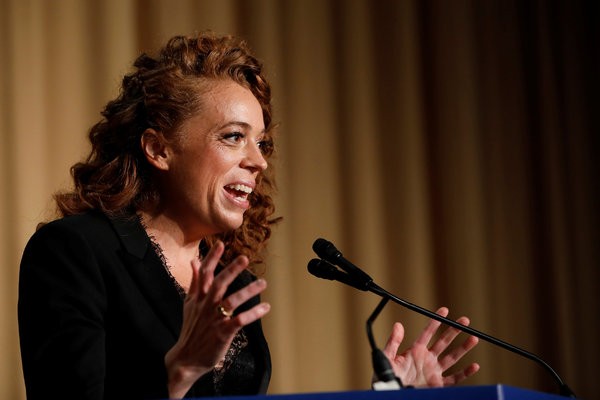Were Michelle Wolf’s Remarks Justified?

Picture by Pranesh Kumar
May 13, 2018
As per tradition, the last Saturday of April, which was April 28th this year, marked the date of the annual White House Correspondents’ Dinner. The dinner, which had originally been a small gathering with the press and the White House, has expanded over the last few years into a much larger, more general celebration of the First Amendment. This is largely because of the journalists who rub shoulders with a number of Hollywood celebrities, White House administrators, and industry elites who attend the event. Though the WHCD has almost always been filled with elaborate partying, entertainment on all ends, and fresh news stories, none of the gatherings have had as much media coverage as the dinner of 2018.
At almost all of the White House Correspondents’ Dinners, it is normally the comedian who steals the headlines. The comedian is assigned with the simple, yet effective role of roasting the journalists and the people they cover with a high degree of truth and humor. However, the comedian this time around, the rising star Michelle Wolf, took her “roast mandate” to a new extreme. She mocked, amongst others, Mike Pence, Ivanka Trump, Eric Trump, Democrats, Michael Cohen, Paul Ryan, Hillary Clinton, and even correspondents from CNN as well as Fox News as a whole. These incidents seem antagonistic enough, though the most memorable of Wolf’s set of insults were the ones aimed at Sarah Huckabee Sanders, who is representing the Trump administration.
Sarah Huckabee Sanders, the current White House Press Secretary, was subjected to scathing remarks from Wolf, including jokes like, “I love you as Aunt Lydia in The Handsmaid’s Tale,” and, “[Sarah Sanders] burns facts and then she uses that ash to create a perfect smokey eye.” She remained relatively stoic amongst all the criticism and the ensuing applause, though people such as Donald Trump took to Twitter immediately afterwards to discuss the situation and how he felt it was disgraceful.
Amongst the events that occurred during Saturday, April 29th, controversy has arisen regarding the appropriateness of Wolf’s comments given the setting in which she presented them and the extremity of some of the insults. Ultimately, given the nature of the WHCD and the fundamental role of political comedians nowadays, it can be seen that Wolf’s comments, though harsh, are justifiable and should not be punished.
As shown through historic examples, the WHCD is supposed to be a lighthearted event where statements by everyone involved should not be treated too seriously. Some may argue that the WHCD’s priority is to serve mainly as an event for the “big shots” to open up, yet the entertainment aspect is what has made these dinners so iconic. This is one of the reasons why comedians are appointed to appease the crowd, yet these same comedians are constantly under scrutiny. This topic was one of the main points addressed by Margaret Talev, one of the defenders of Wolf. Talev and Wolf claimed that the White House should have known what to expect when inviting Wolf to the event. Comedians are supposed to entertain, and they are encouraged to exercise the right of free speech without being punished or facing backlash.
Though conservatives may argue that the degree of leniency has gone too far, the comments which people like Wolf made, though insulting at times, should be treated as a method of laughter rather than a direct attack. This concept was also emphasized by supporters of Wolf’s comedic routine. Wolf was speaking truth through comedy, and the messages that she conveyed were not entirely meant for the 3,000 people who participated in the event, but for all of the viewers who were not present at the actual dinner as well. It was one of the ways she was embracing the fundamental aspects of the First Amendment.
There are not many political moments and events where politicians express themselves to the general population in a satisfying manner. The addition of comedians such as Michelle Wolf should not be interpreted as disruptions to these interactions.



